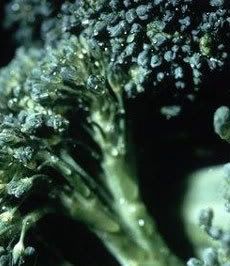
Many common grains and nuts are full of beneficial vitamins, minerals, and nutrients that are especially important for you and your baby during pregnancy and can help relieve many unpleasant pregnancy symptoms. So try adding the following foods to your diet for better health. (Always talk to your doctor before adding anything unusual to your diet while you are pregnant.)
Walnuts
Walnuts not only improve the flavor of salads, soups and entrees, they are also highly nutritious and even medicinal. Raw walnuts are loaded with vitamin E and antioxidants, as well as folic acid, iron, magnesium, potassium, zinc and omega 3 fatty acids. They are also are an important source of monounsaturated fats and pack a lot of protein and vitamins B1, B2, B3, B5, and B6 inside that little shell. They also help to lower levels of LDL cholesterol in the bloodstream, and have been used to calm hysteria and reduce morning sickness. Because they provide many of the elements that the body requires but cannot manufacture, walnuts are considered an essential food to include in a healthy diet.
Flax Seed
Mixing 1 to 2 tablespoons of flaxseed or ground flaxseed powder into foods up to three times per day is a gentle way to treat constipation. Flaxseeds contain essential fatty acids and DHA (docosahexanoic acid), which are important for fetal and infant brain development.
Almonds
Chewing on raw almonds and swallowing the liquid can relieve heartburn. They also provide a nutritious snack packed with dietary fiber, protein, more vitamin A and E than any other nut, and the most powerful and absorbable form of vitamin E. Not least of all, almonds are cholesterol free!
Alfalfa
Because of its deep root system, alfalfa is a great source of protein and important nutrients such as vitamins K and C, calcium, iron, phosphorus, and chlorophyll. Research suggests that it may remove from your liver and small intestines chemical carcinogens found in food before they have a chance to do your body any harm. Alfalfa is also effective as a digestive stimulant and may help ease morning sickness, as well as fatigue and muscle tenderness when used directly on the skin or added to a bath. Although it has a flavor that may not appeal to everyone, it is safe to eat in moderation throughout pregnancy; however, many alfalfa extracts contain high amounts of alcohol and should be avoided during pregnancy. Alfalfa may be particularly beneficial in late pregnancy because the vitamin K it contains promotes blood clotting, which reduces the risk of postpartum hemorrhage.
Bran
The National Cancer Institute recommends eating 20 to 35 grams of fiber daily, yet the typical American diet contains only 7 to 8. Eating a fiber-rich diet is especially important during pregnancy because it can help prevent and treat two common pregnancy conditions: constipation and gestational diabetes. One of the best ways to get enough fiber in your diet is to consume bran and bran products every day. Wheat bran is a good source of insoluble fiber, which can relieve constipation; while oat bran is a good source of soluble fiber. Soluble fiber breaks down as it passes though the digestive tract, forming a gel that traps and removes cholesterol, which may decrease your risk of heart disease.
Dandelion Root and Leaves
Dandelion root and leaves (taraxacum officinale) traditionally have been used to alleviate nausea, calm an upset stomach, and gently promote bowel movements. Dandelion greens are also considered to be highly nutritious, containing more beta-carotene than carrots and more iron and calcium than spinach. They are also a great source of vitamins B 1,2,5, 6 and 12; vitamin C, E, and D; biotin and inositol (promotes the health of cell membranes); potassium; phosphorus; magnesium and zinc. In addition, the dandelion root promotes the flow of bile, reduces inflammation of the bile duct, helps eliminate gallstones, reduces liver swelling, and serves as a gentle diuretic that aids kidney function.



